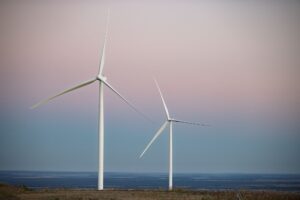Following the frenzy of commentary around the introduction of carbon pricing into the Australian economy on July 1, there has been a striking drop-off in coverage of the issue. With the sky firmly in place, and legs of lamb still in the weekly shopping basket, there has been relatively little to fan the flames of media interest.
One ember does remain: over the next three months, electricity bills will be arriving in households all over Australia. In NSW and Queensland, state governments have legislated to require bills to include a statement explicitly blaming the ‘federal carbon tax and green energy schemes’ for large cost hikes (a little naughtily, an annualised figure is used on the quarterly bills, and state-based policies are included). In any event, rising household energy costs appear to be shaping up as an attractive battleground for carbon critics over the next few months.
However, showing a media adeptness that has not always been evident over the past few years, the government has introduced a new dimension to the debate. With her landmark speech to the Energy Policy Institute on August 7, the Prime Minister went on the front foot.
She did not seek to downplay electricity price rises – she did the opposite, placing them centre stage, but laying the blame elsewhere, at the feet of Liberal state governments that have been “increasing their revenue at the expense of the family electricity bill”. Gillard said: “That has to stop”.
In reframing the debate to focus on the approximately 50 per cent of household power bills that goes on “poles and wires”, Gillard has reshaped this battleground. (Of course, it helps that all but two state governments are currently run by the Libs, even though ‘gold-plating’ is hardly a new phenomenon).
Regardless, a debate on rising energy costs, while not without drawbacks, plays into a key part of the Government’s mitigation agenda: the importance of energy efficiency. Could this long overlooked pillar of climate change policy finally have its turn in the sun?
There are reasons to believe it will. From an operational perspective one of these is obvious: the era of cheap energy is over, and energy efficiency can save households hundreds of dollars, and businesses anything up to millions of dollars, per year. However, energy efficiency also has a psychological advantage: unlike carbon pricing, you don’t need to believe in climate change to believe in energy efficiency. This means that there are no ideological obstacles to its uptake.
Some of the most vociferous opponents of action on climate change are making efforts to reduce their household’s energy use – in fact some describe this explicitly this as their ‘protection against the carbon price’. Companies that vocally opposed the introduction of carbon pricing have energy efficiency programs in place that saving tens of millions of dollars (and, as it happens, millions of tonnes of greenhouse gas emissions).
Households and companies all over Australia can be encouraged to get on board with energy efficiency. Just don’t mention the C word. (In her speech, Gillard mentioned climate change just once, but I think she got away with it).
In fact, in practical terms, it may be best not to mention ‘energy efficiency’ either. The term is so broad as to have little meaning for the average Australian. Instead, proponents would do well to focus on articulating the benefits of specific activities – such as buying efficient equipment, or turning the TV off at the wall.
And this should be easier and easier as the media focuses on rising energy bills. In this context, initiatives such as the Telegraph’s One Big Switch campaign serve to help people understand that an energy bill is not something that happens to you: it is something you can influence. The more the media talk up the costs of energy, the more opportunities there are to educate Australians on how to use less of it.
The media cycle is about to provide energy efficiency with a chance to shine. The broad concept has bipartisan support. Efficiency measures can help households and businesses protect themselves against rising energy prices (including carbon price impacts). Those who are driven by the environmental benefits of energy efficiency should be delighted. They should be in love with One Big Switch. But for the moment, it’s probably best they stay in the closet. Energy efficiency is the climate fix that dare not speak its name.
Andrew Ure is the Managing Director of OgilvyEarth, a sustainability communications company (part of Ogilvy Public Relations Worldwide). He is a former official of DFAT and DCCEE.






